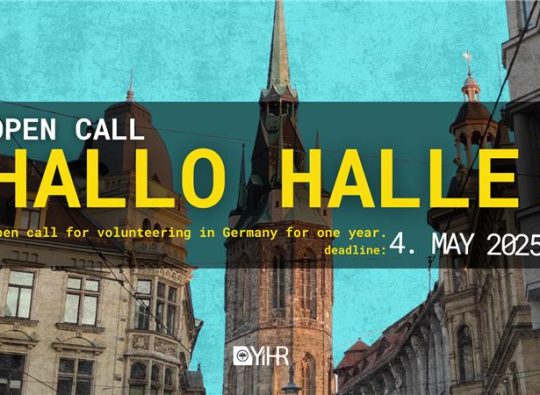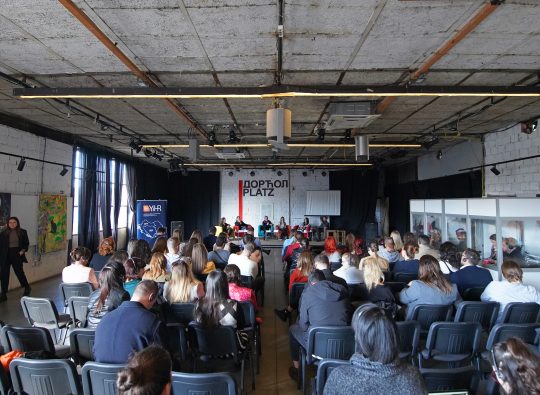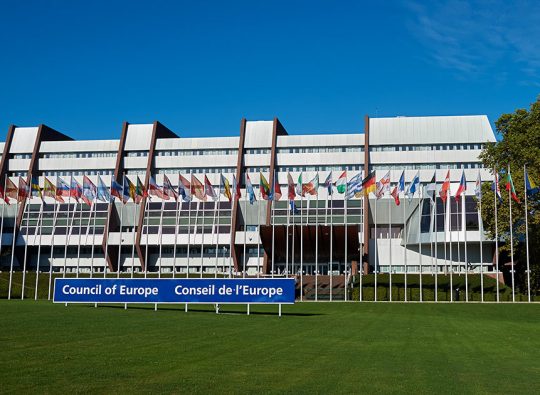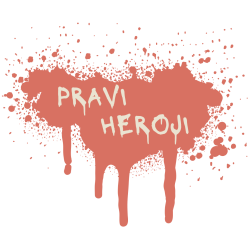Participants said that the only criteria according to which the EU and the international community support or do not support the political elites in the Western Balkans cannot be the so-called stabilocracy, meaning that it is enough “that there is no war here”.
Instead of being uncompromising in advocating for European and civilizational values, against the denial of genocide, and for the emancipation of young people, with that way of thinking, the international community is killing the progressive forces in the region, it was said at the conference.
They reminded that the so-called Inzko’s law that bans the denial of genocide in Bosnia and Herzegovina does not refer only to punishing those who deny the genocide in Srebrenica, as it is done for political and manipulative reasons, but to all genocides.
Apart from domestic political institutions, they intensely criticized the international community for not standing behind Inzko’s law unconditionally, because that would mean a serious change in narratives and a gradual cessation of denial of genocide and war crimes.
It was estimated that Serbia definitely has a problem with accepting the concept of the rule of law. One of the consequences of that is the fact that the prosecutor’s office is not independent but is under the control of the executive authorities, which is why there is no progress in war crimes trials. It was further stated that an additional problem in the Serbian society is the fact that the opposition, with rare exceptions, does not want to deal with topics of genocide denial and celebration of war criminals.
The participants agreed that the previous and current civil society strategies in the fight against genocide denial have been exhausted and that new ones should be defined by learning from past mistakes, but also from comparative experiences of other countries that have had or still have problems with dealing with the past.
They pointed out that it is necessary to strengthen empathy in society, pay attention to victims of war crimes, educate young generations and not accept the hoax that the two conflicting parties in society are those who celebrate war criminals and deny genocide and those who strongly oppose it.
Participants said that the attitude towards the issue of dealing with the past is actually our attitude towards the kind of society we want to live in. The more the culture of remembrance is nurtured in an honest and correct way, the more democratic that society is.
Participants of the conference titled “How to stop the denial of genocide in Srebrenica?” were greeted by the Deputy Head of Mission of the German Embassy, Dorothea Gieselmann, and the Program Director of the Youth Initiative for Human Rights, Ivan Đurić.
Ivana Žanic, executive director of the Humanitarian Law Center in Belgrade, Tea Gorjanc Prelević, director of the Human Rights Action in Podgorica, Sabina Ćudić, a politician from Bosnia and Herzegovina, and Ajla Škrbić, a professor of international law, spoke at the panel “Criminal Responsibility for Denying the Srebrenica Genocide”.
Murat Čelikan, co-director of the Hafiza Merkezi organization from Turkey, Nedim Jahić from the Srebrenica Memorial Center, Željko Stanetić, director of the Vojvodina Civic Center, and Slađana Lazić from the Humanitarian Law Center spoke at the panel “Opposing Practices of Remembrance”.
Representative of the EU Delegation in Belgrade, Mateja Norčić Štamcar, Semiha Kačar from the Sandžak Committee for Human Rights, Nataša Govedarica from the forumZFD, Nastasja Radović from Women in Black, Katarina Golubović from the Lawyers’ Committee For Human Rights, sociologist Janja Beč Nojman Nojman, Dinko Gruhonjić from the Independent Association of Journalists of Vojvodina, Jovana Kolarić from the Humanitarian Law Center, and historian Olga Manojlović Pintar all took part in the discussions.
The conference was organized by the Youth Initiative for Human Rights, forumZFD in Serbia, and the Independent Association of Journalists of Vojvodina, with the support of the Ministry of Foreign Affairs of the Federal Republic of Germany. The conference is part of the project Advocacy, Artivism, and Education to End Genocide Denial and Strengthen Reconciliation Process.
The project is supported by the Ministry of Foreign Affairs of the Federal Republic of Germany. Germany supports efforts to establish a participatory culture of remembrance, regional cooperation, and reconciliation in the Western Balkans.












